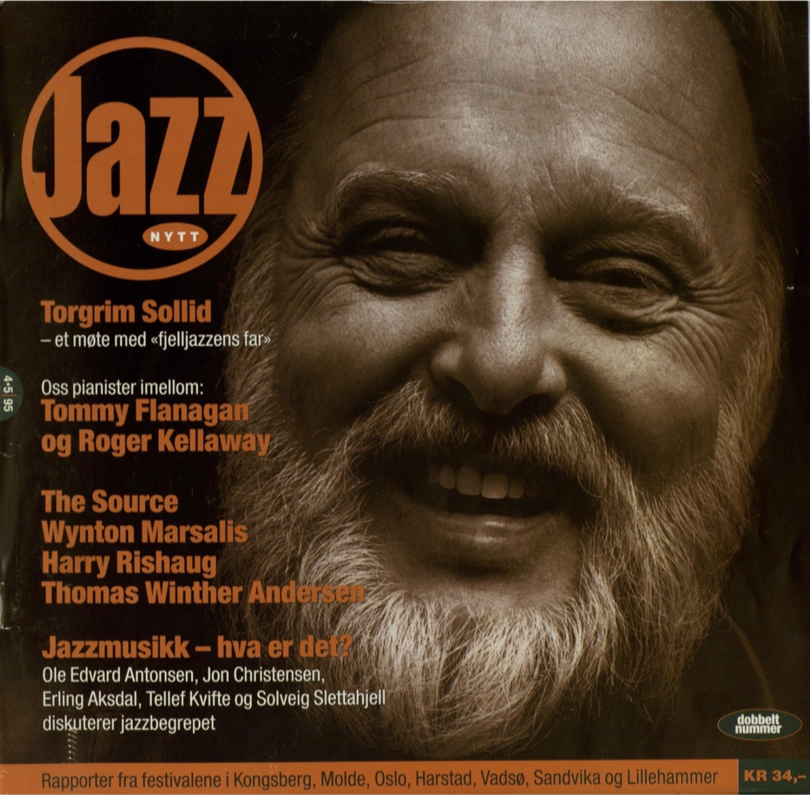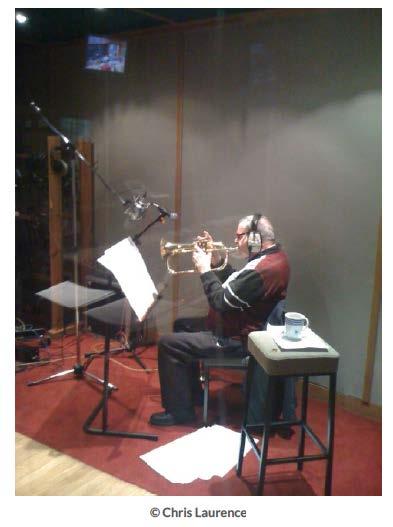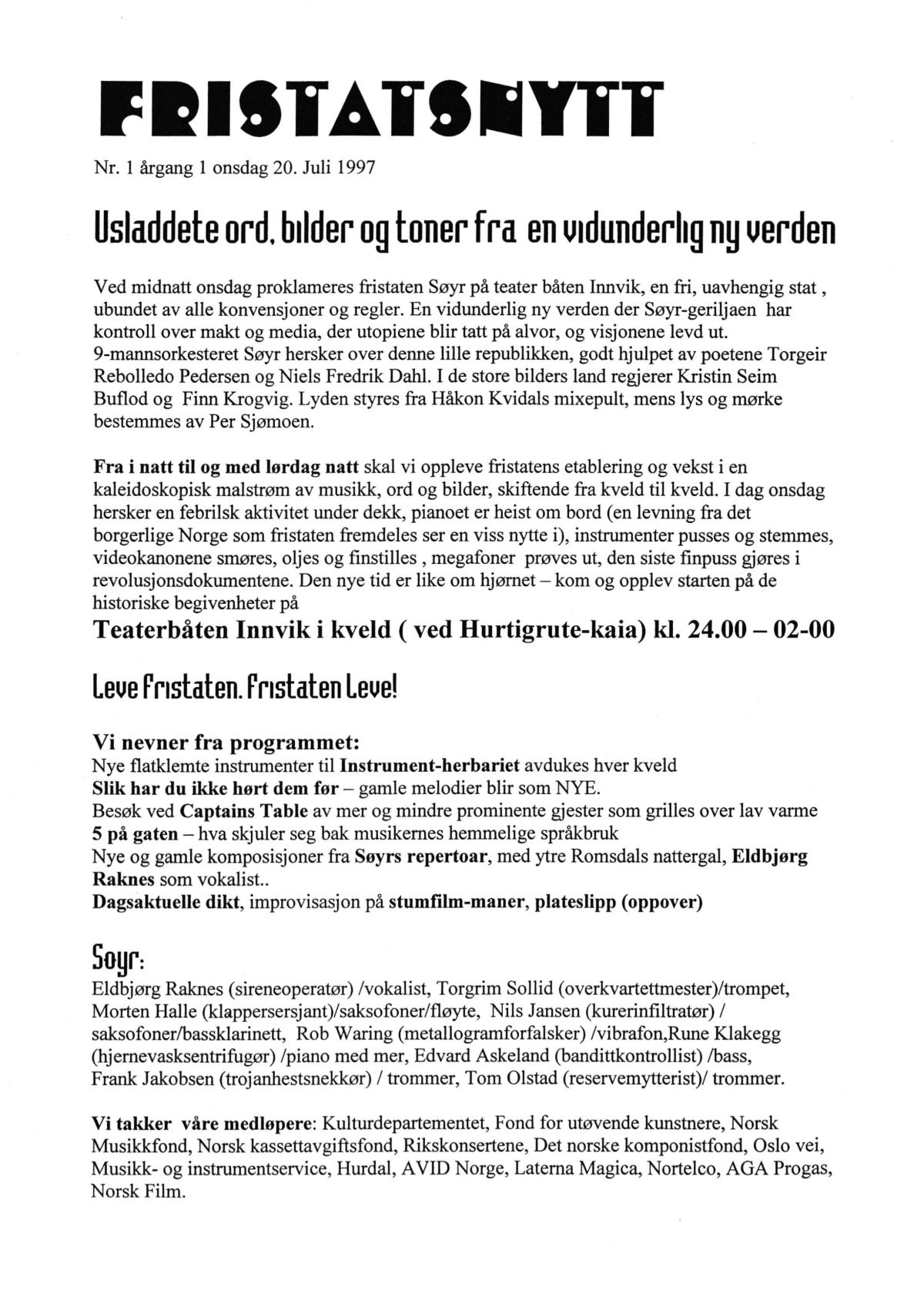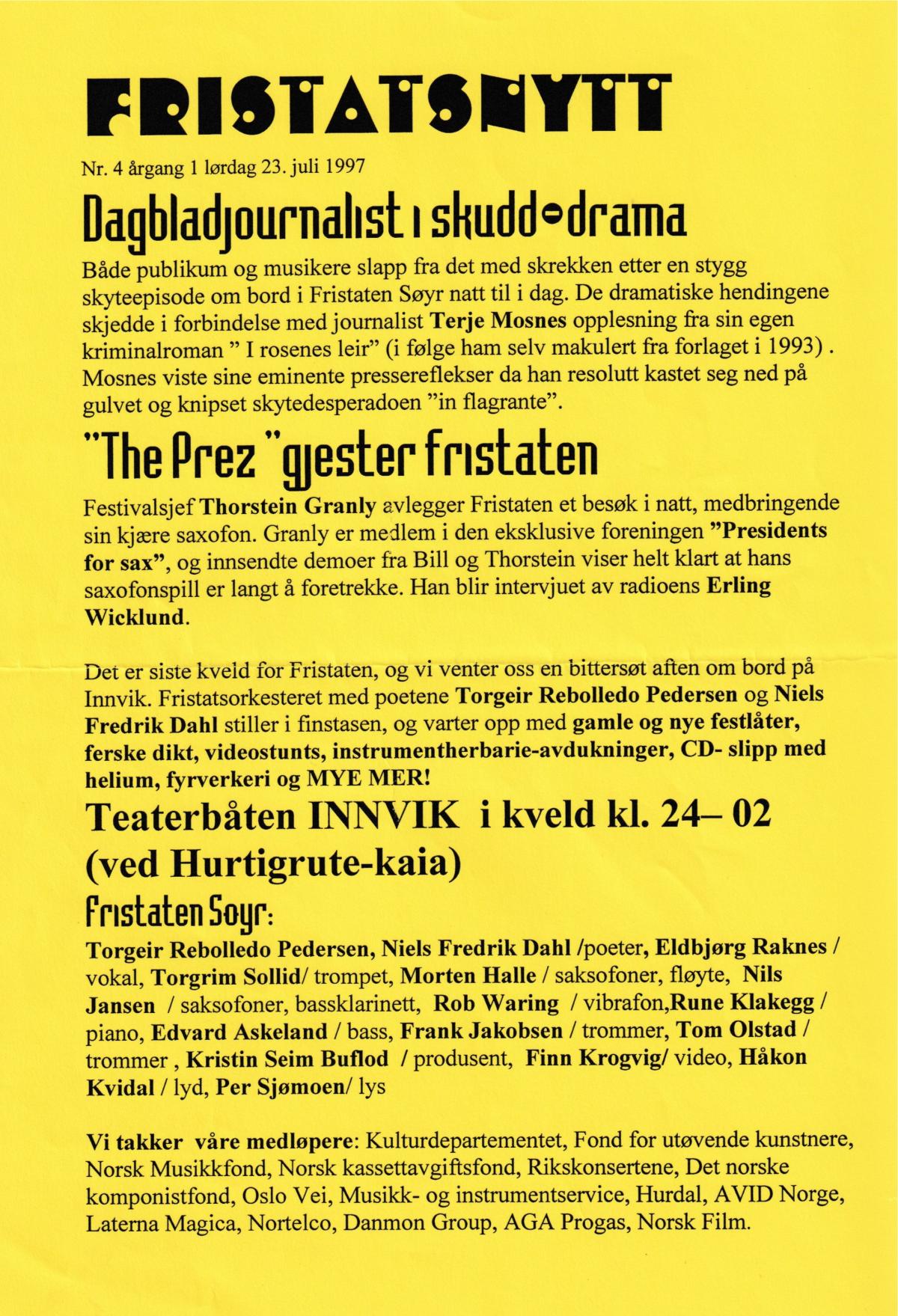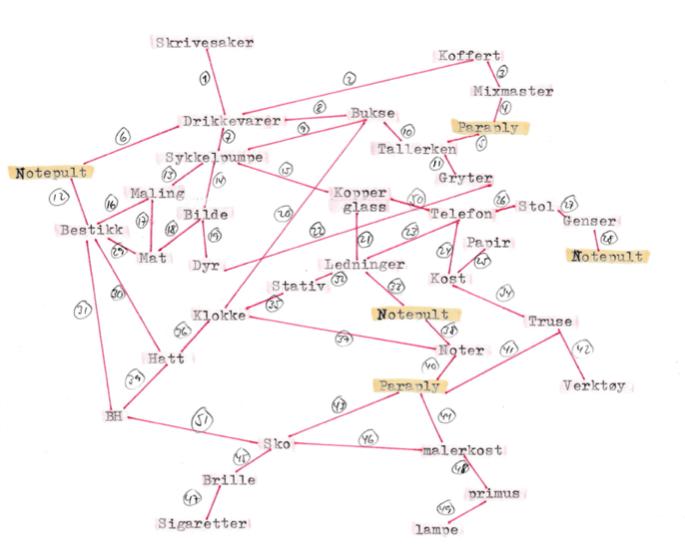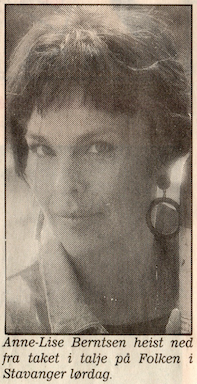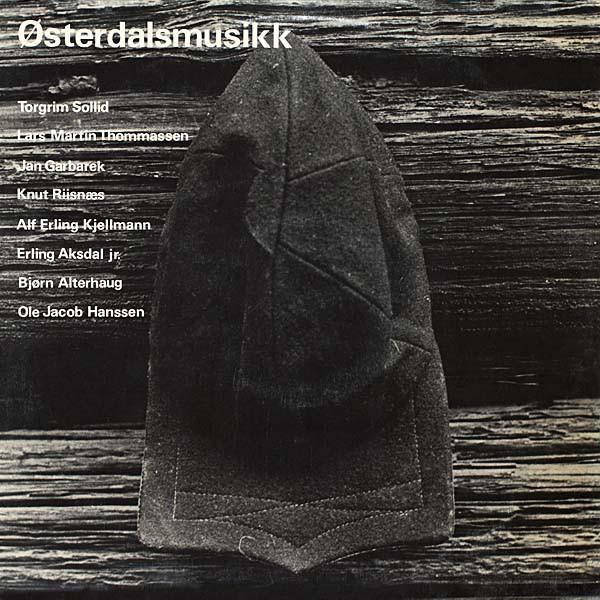
Østerdalsmusikk (1975)
Torgrim Sollid tok initiativ til innspillingen av LPen Østerdalsmusikk i 1975. Han hadde studert opptak av spellemenn fra Østerdalen og boken Østerdalsmusikken av Ole Mørk Sandvik. Han ønsket å introdusere jazzmusikere for dette materialet for at de skulle tolke og bli inspirert av det på sin måte. Prosjektet var forløperen til bandet Søyr, som Torgrim startet i 1976.
